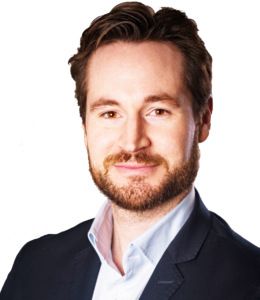Opinion
Global Denmark: Denmark – the capital of trust
Thomas mulhern
This article is more than 6 years old.
Denmark is the capital of trust and trust is the capital of Denmark. Time and time again on my Global Denmark Podcast we circle back to the significance of trust. I think it´s time to explore how this came to be and why it is important.
Social trust
Gert Tinggaard Svendsen, a researcher on the notion of truth at the University of Aarhus, explores the subject in his book ‘Trust’.
Svendsen defines social trust as a trust in people whom the person exhibiting trust does not know, or know of, directly. Social trust reflects a positive perception of other people and confidence that others will interact and behave, as Svendsen puts it, decently.
The smaller a perceived risk about another person, the more they will be willing to co-operate. There are many theories on the origins of trust, but Svendsen addresses the big three: cultural heritage, the welfare state and political stability.
The big three
Denmark’s long-standing culture of co-ops and associations, which gained traction in the 1860s, led to open networks with shared interests that depended upon high levels of trust. Corruption in the volunteer-driven, tightly-knit organisations was rare. The co-operative mindset spread to both the intellectual and political spheres, and it is undoubtedly one of the pillars the Nordic welfare state model is based upon.
A welfare state with minimal corruption – which reliably provides goods through education, redistribution and equality – fosters trust, thus reducing social conflict. Welfare states that have effective and non-corrupt public institutions give citizens a better understanding of the society, which further reinforces trust. This not only benefits the people of Denmark, but also attracts foreign investment, ultimately contributing to the economic success of the country, and nurtures political stability.
Studies show that if people live with long periods of stable and transparent democratic institutions, with low levels of corruption, trust can grow. The trust paradigm tends to break down if too many people cheat, as they no longer have the same incentives to trust each other. Svendsen argues that the more control citizens are subjected to, the more superfluous they will find their collective trust reserve: “Control is good, but trust is cheaper. The more trust the less transactional costs it is that simple.”
Circle of trust
Ultimately, trust is the glue that underpins the cultural values that manifest themselves in terms of norms, symbols and practices.
To authentically integrate, one needs to appreciate trust and enter the Danish circle of trust. But how can an expat break into a monoculture´s circle of trust?
More on that next time … Trust me!

About
Thomas mulhern
Thomas Knudsen Mulhern, the managing director of Globally Local (globallylocal.dk) and former head of the International Department at Institut Sankt Joseph, is a passionate advocate of bilingual education in Denmark. In addition, Thomas co-hosts the Global Denmark Podcast (globaldkpodcast.com)










































